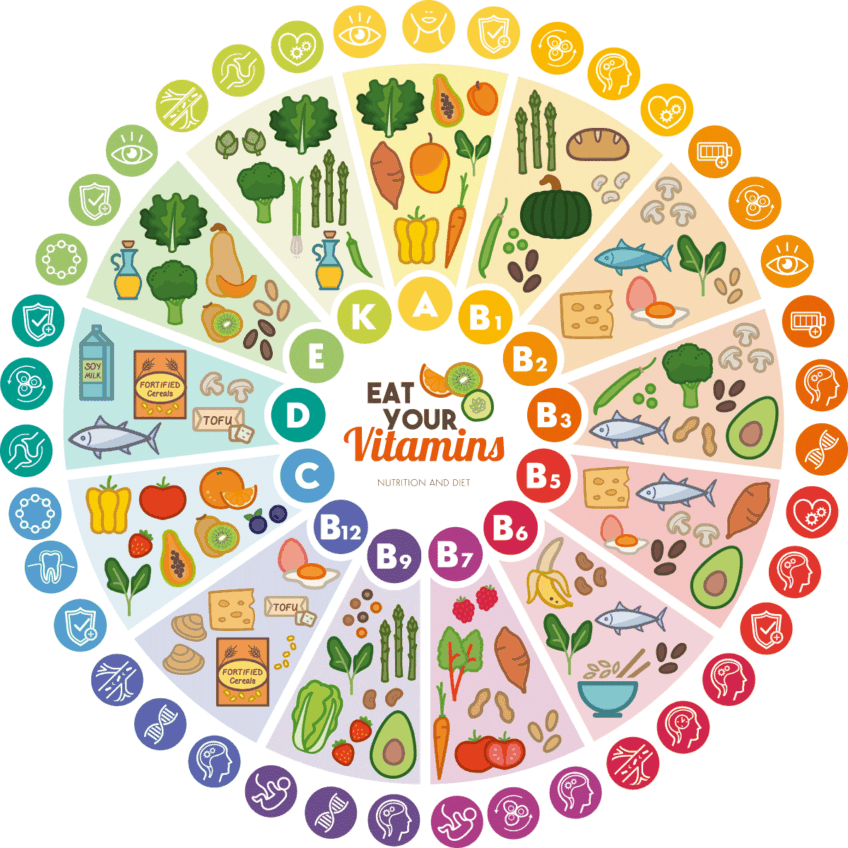The Uses and Importance of Vitamin Supplements
Some swear by vitamins, and others think the entire industry is a scam. Let's explore what the research shows and some top vitamins to consider.

Some people believe that vitamin supplements are unnecessary and expensive.
At the root of their hesitation to use them might be a dislike of swallowing a pill -- especially the larger ones that often comprise multiple vitamin supplements.
Some believe the claims and advertisements for these supplements to be exaggerated at best and false at worst.
Then, others swear by supplements to the extent that, given the right combination of vitamin pills, they can function perfectly well on nothing but beer, French fries, and ice cream.
The truth of the matter lies somewhere between these points of view.
Vitamin Supplements - A Brief History
In the past, before vitamin supplements were available, they were less important than they are now.
Remember that in that same past, male and female life expectancy -- even setting aside the significantly more substantial risk of death from childbirth in women -- was considerably less than it is today.
The reason supplements may not have been as relevant then as they are now is that the food people ate from the soil was richer in nutrients. On top of that, the food itself was nowhere nearly as processed as the food we eat today. Also, society shouldn't be so quick to attack the food producers for this situation.
Our food supply, even more necessary to feed an ever-growing population, would be severely crippled without pesticides. And, as for preservatives, the toll in illness and death from eating spoiled food was far costlier in the past than the toll society pays today for less-nutritious food.
As people know the term today, vitamins were discovered by a Nobel-prize-winning Dutch scientist named Christiaan Eijkmann in 1929.

And an interesting story on chicken feed also co-incited with the discovery.
Further research has revealed that there are two fundamental classes of vitamins: fat-soluble and water-soluble.
The difference in composition between the two groups is that fat-soluble vitamins are simpler, containing just oxygen, carbon, and hydrogen. Water-soluble vitamins contain those elements plus nitrogen and sometimes sulfur.
The physiological difference is that fat-soluble vitamins can be stored in the body for future use, while water-soluble ones cannot.
The most important fat-soluble vitamins are A, D, E, and K.
The main water-soluble vitamins are thiamine (B1), riboflavin (B2), niacin (B3), Pantothenic acid (B5), pyridoxine (B6), Biotin (B7, also called vitamin H), Folic acid (B9, also called folate) and Vitamin C (also called ascorbic acid).
Whichever class or designation these vitamins belong to, they enable the body to metabolize the nutrients in food.
Are Vitamin Supplements Food?
No. It's important to note that vitamins themselves are not a source of energy and have no inherent nutritive value.
Vitamins depend entirely on the actual food people eat to function. Therefore, a diet of water and vitamin supplements would be fruitless in both senses of the word.
Please read that last paragraph again -- vitamin supplements alone do nothing without proper nutrition. That is why they are called supplements.

Researchers at the Mayo Clinic have determined that food is the best way to get the necessary vitamins.
Not only will the food provide better metabolic processing than any pills, but it will also provide the needed dietary fiber that the vitamin supplements do not deliver.
True, fiber supplements are available, but the healthiest, safest, and most reliable way to get dietary fiber is natural. Many weight-loss-friendly foods provide excellent sources of fiber.
With that being said, those same researchers concluded that it might be difficult or impossible for many people to eat a diet that is entirely self-sufficient in terms of vitamin production.
And, as noted earlier, that same food will often be far less vitamin-rich than the equivalent foods of a bygone era.
How to Take Vitamins
However, you get your vitamins, whether through food or vitamin supplements. It is essential to note they are not mere frills to provide a happier outlook on life.
Though vitamins in the body were a recent discovery, they have existed in humans from our origins as a species. Without them, our cells would literally die. Of course, if cells cannot live, neither can people.
Vitamin supplements, if taken, should be consumed at the proper daily dosage.
It's perfectly fine to take multiple vitamins or a specific vitamin that offers 100% of the recommended daily allowance of a given ingredient, even though a person will add to that 100% to some extent with whatever food he or she eats that day.
Can Vitamin Supplements be Toxic?
What people need to avoid, except under the most pressing and temporary circumstances (as stipulated by a doctor and no one else), are mega-doses (such as 1000% of the RDA) of a given vitamin.

Not only will such oversized doses diminish the effectiveness of the remaining vitamins the body needs, but they will also, with continued over-consumption, lead to the risk of toxicity. Remember, too much of anything is harmful and, in some cases, fatal.
Even water will kill a person if that person drinks too much at one time. And this is not about drowning but voluntarily swallowing down too much water too quickly.
The danger of toxicity is very much a factor in the matter of vitamin supplement intake -- repeated and substantial overdoses of any vitamin supplement can cause the worst sort of trouble.
Just because vitamin supplements are sold over the counter does not mean they are entirely safe.
Which Vitamins Should You Take?
One of the safest courses of action is to take multiple vitamins appropriate to an individual’s condition as a supplement to a reasonably healthy, balanced diet. “Appropriate to condition” refers chiefly to a person’s gender and age.
For example, pregnant women are at risk for iron deficiency and need more iron, while older men may be concerned about prostate health. Multiple vitamin supplements are tailored to men, women, and seniors, to name three specialized types.
In fact, the need for gender-specific supplements becomes more important with age. A 21-year-old man and a 21-year-old woman can probably get by with the same general multiple vitamins and suffer no significant deprivation.
The quality of the various multiple vitamins varies from manufacturer to manufacturer and deteriorates in all cases with age.
The wise consumer would do well to purchase those brands with a prolonged record of reliability and which have withstood regulatory scrutiny.
Here's a list of top supplement brands:
Do Vitamin Supplements Expire?
Vitamin pills DO lose their potency over time. If this results in a little more money out-of-pocket, then consider first what price to put on good health. Then, consider the cost of these over-the-counter vitamin supplements compared to much of the prescription medicine that may become necessary without maintaining proper daily nutrition.
Are Vitamins Necessary?
If an individual tries to maintain a balanced diet and takes a fresh, reliable multiple vitamin supplement daily, is there any need for specific supplements? There may possibly be.

For example, not everyone gets as much sunlight as would be advisable. There are vitamin supplements to address that situation -- we all know about Vitamin D -- but did you know how important it is to take as a supplement?
Your best bet to determine if you need a specific vitamin supplement and how much of it may be needed is through consultation with a nutritionist (or your physician).
An essential component of everyone’s general physical examination, regardless of age or gender, is blood work. The nutritionist (physician) can determine where or if there is a vitamin shortage from your blood results.
In the case of an older person, an annual examination may be best, but even if someone is young and has not had a recent exam, it would be a good idea to let the people who know what to look for examine a blood sample, among other things.
If the specialist does not address the matter of specific vitamin supplements, you should feel free to ask him or her about supplementing with vitamins.
Other vitamin supplements to strongly consider, and what I would find essential, are:
- Omega-3s
- Probiotics
- Magnesium
- Ubiquinol
My Thoughts?
If you do not typically eat a balanced diet, even if it is healthy, it would be wise to consider a reliable multiple-vitamin supplement.
Regardless, everyone should make some sort of effort to round their diet out as much as possible. Extreme doses of any vitamin supplement are to be avoided.
You should ask your doctor about specific vitamin supplements to be safe.
Tony Lee, MS, RD
Tony Lee, RD, MS, is a highly qualified and accomplished Registered Dietitian with a Master’s Degree in Nutrition Sciences. Tony brings over two decades of experience in dietetics, specializing in sports nutrition. Interests include studying all aspects of wellness, fitness, genetics, and peak health performance.










